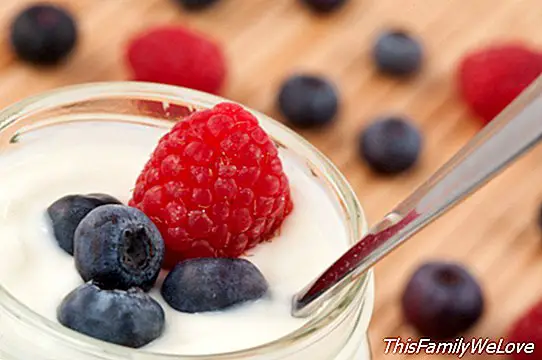Probiotics and prebiotics in the diet for good nutrition
The prebiotics and probiotics they are substances that, when consumed in the right quantities, bring us many benefits. Thanks to prebiotics, compounds that the organism can not digest, and probiotics or live microorganisms, our intestinal microbiota maintains balance. Do you hear all these terms? Do you want to know what they are prebiotics and probiotics and how can we include them in our diet?
Intestinal microbiota: prebiotics and probiotics in the diet
We are a small machine that works with nutrients and greases with emotions. What we eat matters and the body mind balance is achieved through a healthy lifestyle. We have the obligation to listen to our body if we want to feel good and for this it is necessary that we know how to interpret their messages and needs.
One of the most important parts of our body is the intestinal microbiota, which is the main source of energy of the cells of our colon. In the microbiota are harmful bacteria and beneficial bacteria. The ones do not exist without the others and therefore, there must be a balance. How do we get it? Giving in every moment to our body the nutrients that it needs, pulling supplements rich in probiotics and controlling the prebiotics when necessary, exercising and monitoring our emotional stability.
What are probiotics and prebiotics?

- Probiotics They are small bacteria that are beneficial if consumed in adequate amounts. They are present in foods, supplements, supplements and some medications. The best known probiotics are lactobacilli and bifidobacteria in yogurt.
- The prebiotics They are a type of carbohydrates that the body can not digest, but they have a very positive physiological effect on our intestines because they help grow probiotics, that is, the development of those beneficial bacteria we talked about. The most studied prebiotics are inulin and fructooligosaccharides (also known as FOS). Like probiotics, they can appear in some foods in a natural way, or be incorporated into the body through food supplements or medications.
What are the benefits of probiotics and prebiotics in the diet?
When our intestinal microbiota is unbalanced, what we can do, if the doctor recommends it, is to resort to symbiotics (prebiotics + probiotics), which favor the growth of positive bacteria in our body. This imbalance takes place for example when we are sick and we take antibiotics, because these often hurt our stomach by destroying the intestinal flora. In addition, many people tend to somatization, which is the process by which psychic problems are transformed into organic symptoms involuntarily. What in practice means that stress, for example, can cause gut or headaches and that, internally, means that our cells are not balanced. The prebiotics and probiotics regulate the intestinal flora and also provide us with the following benefits:
- Reduce diarrhea caused by the consumption of antibiotics.
- Combined probiotics with vitamin C, strengthens the immune system of children.
- Reduce fatigue and fatigue.
- Reduces allergies, especially in children.
- Combat stress.
- They regulate our intestinal flora and reduce gas and constipation.
Where do we find probiotics and prebiotics?
1. Probiotics are found in yoghurts, fermented milks and supplements.
2. Prebiotics, on the other hand, are found in fruits, vegetables and vegetables.
Some examples of these foods rich in prebiotics are: bananas, asparagus, garlic, tomatoes, leeks, whole wheat, artichoke, onions or chicory. We also find prebiotics in some supplements. Now they are incorporated more and more frequently to juices and cookies. Look at the labeling of the products you buy at the supermarket.
Also today many products are sold with symbiotic components, that is, they combine probiotics and prebiotics because for the first to grow the second ones are necessary although we can not digest them. The body is responsible for discarding what you do not need. In wholemeal bread and yeasts there are also prebiotics.
It is important to have a balanced diet and not consume any drug or food supplement without having previously consulted the effects of this in our body with a specialist. We must eat five pieces of fruit and vegetables a day, drink at least two liters of water and exercise regularly so that our body (that washing machine of which we spoke) works properly.
Elisa García




